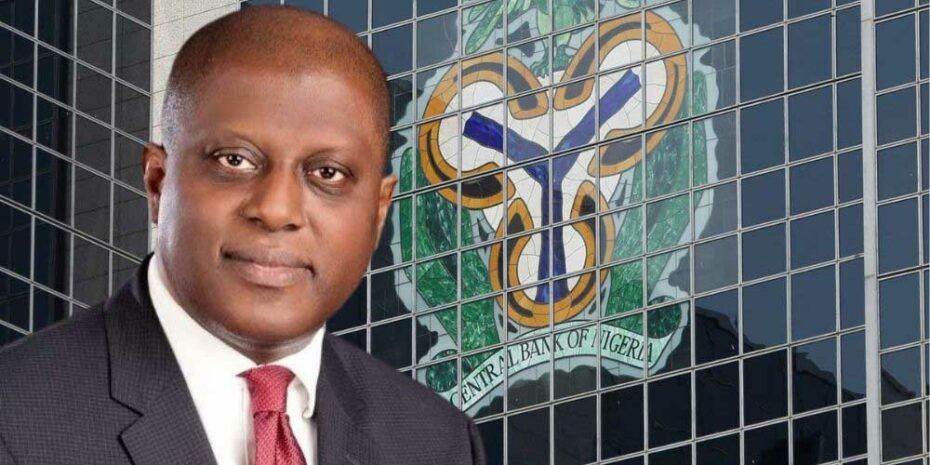
The Governor of the Central Bank of Nigeria (CBN), Olayemi Cardoso, has indicated that interest rates may begin to drop in the near future as inflation shows signs of moderating, sparking optimism among businesses and investors for improved access to credit.
Cardoso made the remarks during a fireside chat at the Eurocham Nigeria C-Level Business Forum held in Lagos over the weekend. A statement released by the apex bank on Sunday underscored its commitment to stabilising the economy, deepening the banking sector, and boosting Nigeria’s global competitiveness as an investment destination.
“There is a substantial potential for interest rates to decrease in the future as inflation continues to decline and as markets become more efficient in allocating capital,” the CBN quoted Cardoso as saying.
He added that a more stable macroeconomic environment would create the conditions needed for stronger corporate lending and higher levels of domestic and foreign investment.
Interest Rates, Inflation, and Lending Outlook
The CBN raised its benchmark Monetary Policy Rate (MPR) six times in 2024, from 18.75% to 27.50%, in a bid to curb inflation and stabilise the naira. This marked one of the most aggressive monetary tightening cycles in the nation’s recent history.
However, the bank has kept the rate unchanged at 27.50% in all three meetings held so far in 2025 (February, May, and July), signaling a shift toward a more cautious stance.
Cardoso explained that while high interest rates have placed pressure on businesses, the CBN’s immediate priority was to restore confidence and stability to the financial system after years of volatility.
“We will protect the stability that has been re-established in the financial system with the utmost zeal,” he said.
He emphasized that the CBN is now working to ensure that the financial system is strong enough to support corporate lending and broader economic expansion.
Bank Recapitalisation and Financial Inclusion
The CBN governor also touched on the ongoing bank recapitalisation programme, describing it as a critical move to ensure that Nigerian banks remain resilient and capable of supporting economic growth.
The new capital requirements, he said, would create stronger institutions able to withstand future shocks and extend more credit to key sectors of the economy.
He further outlined the CBN’s priorities, which include embracing technology-driven banking solutions, expanding access to fintech platforms, and deepening financial inclusion.
According to him, innovation in digital finance will be essential for reducing poverty and bridging financing gaps, particularly among underserved populations.
Better Policy Coordination, Bigger Global Role
Cardoso noted that improved coordination between the CBN and other key ministries such as Finance, Trade and Industry, and the Budget Office has helped strengthen Nigeria’s policy environment.
He believes this collaboration is crucial for sustaining the ongoing reforms and positioning Nigeria for long-term economic stability.
On the international front, Cardoso said Nigeria’s geographic size and strategic location gave it a unique opportunity to play a leading role within West Africa and the wider African continent.
“The urgency of addressing our own affairs is underscored by the ongoing geopolitical changes,” he added.
The CBN statement also stressed the need to maintain domestic stability, describing Nigeria as a large and attractive market with potential to act as a gateway to Africa.
Business Sector Still Feeling the Pinch
Despite the cautious optimism, Nigerian businesses continue to reel from high borrowing costs.
The CBN’s June 2025 Business Expectations Survey, which covered over 1,900 companies across agriculture, services, and industry, revealed that high interest rates were now the biggest constraint on operations even ahead of long-standing challenges like insecurity and power supply.
The data showed:
- Interest rates: 75.6 (constraint index)
- Insecurity: 75.2
- Power supply: 74.3
Similarly, the Lagos Chamber of Commerce and Industry has called on the CBN to reconsider its current stance, arguing that the 27.5% interest rate is a severe burden on productive sectors.
“We must restate that the interest rate at 27.5 per cent remains a depressing burden on businesses. We therefore desire to see a reduction in the Monetary Policy Rate,” said the Chamber’s Director-General, Chinyere Almona.
All Eyes on September MPC Meeting
With inflation appearing to ease and investor confidence gradually recovering, all attention now turns to the next Monetary Policy Committee (MPC) meeting, scheduled for September 22–23, 2025.
Market analysts and business leaders are keen to see whether the CBN will begin a rate-cutting cycle, or maintain its pause in line with its cautious stance.
For now, hopes remain high that a shift in policy may soon provide relief to businesses and unlock new investment flows into the economy.
Summary of Key Developments:
- CBN hints at possible interest rate cuts as inflation slows
- Lending rates may ease, improving credit access and investment
- Recapitalisation of banks continues, fintech and inclusion prioritized
- Businesses still cite high borrowing costs as top challenge
- Next CBN rate decision due Sept. 22–23, 2025



